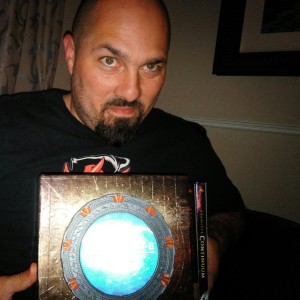I’ve been a sci-fi fan for as long as anyone can remember, but it is probably a sign of my advancing age that I seem to enjoy rewatching old favorites at least as much as new series these days. And at the top of my watch list is a little show called Stargate SG-1.

SG-1 may well be the only television show founded on the idea that humanity must someday rise up and destroy the gods. This is such a recurring motif in the show that after the protagonists finally defeated the gods known as Goa’uld (which the franchise inherited from the original feature film) the writers invented new and frightfully more powerful deities called Ori which posed much more of an intergalactic threat. (Add to this, if you like, that the ancient and godlike enemies of the Ori have noninterference with humankind among their prime virtues.)
If there is any single moment that sums up why I will always love this show, it is the speech in which Teal’c explains to Gerak why no amount of raw power can ever make someone worthy of worship. I happened across it on the YouTube today, so here you go:
Gerak: You were not the one who was chosen. You did not witness the wonders I beheld.
Teal’c: Did they raise the dead? Heal the sick and wounded? Destroy their enemy with but a wave of their hand?
Gerak: The Goa’uld deceived us. The Ori’s powers are pure.
Teal’c: And what is the measure of a god, Gerak? Is it the scope of their power, or how they choose to wield that power? Would a god who is prepared to lead us on the path of enlightenment so contradict this divine benevolence by destroying all those who refuse to believe in him?
If this isn’t a subversive injection of pure freethought into our popular culture, then I really don’t know what would count. It is worth noting that the criticism levied at the Ori here works just as well for the god of the Torah, the Bible, and the Quran. Better, in fact, for the Ori only destroy people once, rather than torturing them forever in the hereafter.
